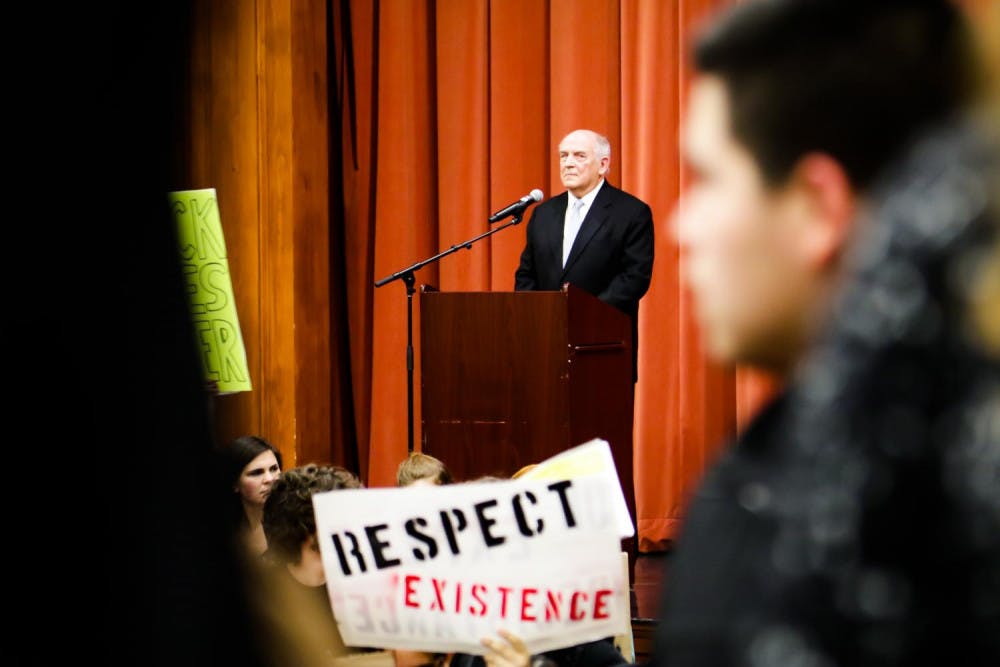The College has officially begun to discipline those who participated in the March 2 protests that prevented Dr. Charles Murray from delivering a scheduled lecture.
According to an official statement released on April 17, the College has identified “more than 70 individuals it believes may be subject to disciplinary procedures under student handbook policies” due to their participation in the protests.
Of those identified, “more than 30 students have accepted disciplinary sanctions for their actions.” In that same statement, the College said, “We will not comment on the nature or range of the sanctions until the process is complete.”
In an effort to shed light on the proceedings, The Campus spoke with several students who had been called into disciplinary meetings regarding their actions on March 2. Given the sensitive situation and ongoing investigation, they described the nature of their meetings and what they were told would be the next steps on the condition of anonymity.
Individuals involved in the protests began receiving emails about potential discipline on Monday, April 3, the first week after spring break. The email, sent on behalf of either Karen Guttentag or Brian Lind, both associate deans for judicial affairs and student life, asked students to attend a meeting with either Guttentag or Lind in the College’s Service Building.
Initial emails did not say that the meeting pertained to the events of March 2. When some students asked for more information, some were initially told that it could not be provided. Others pressed harder and were eventually given information about the subject and nature of the meeting. They were scheduled for an hour.
Meetings consisted of a basic structure but varied in length and topics discussed. Students engaged in a conversation with either Guttentag or Lind about the College’s position and handbook policies. They were not read a script nor were notes taken, according to multiple students.
Before they were given a punishment, students were asked if they had any questions. Students were told that the College had either video or photographic evidence that they had participated in the protest by either standing, shouting, or holding signs. They either received unofficial or official college discipline. Some, after asking to see evidence, were shown either photos or videos of the protest.
Unofficial punishment, according to several students involved, has generally been given in the form of probation; official punishment is anything that goes on a student’s permanent record.
Students who are placed on probation have a letter placed in their file that will be removed at the end of the semester. However, if a student is placed on probation and then violates another college policy, the probation can become a part of their official record.
According to multiple students, the College has given unofficial punishment to students who participated in the protest prior to the live stream of the conversation held between Murray and Russell J. Leng ‘60 Professor of International Politics and Economics Allison Stanger. Students were told that those who continued to protest during the live stream in Wilson Hall may receive official college discipline. As of April 25, it is unclear whether or not any students have received official college discipline. Those investigations, as well as investigations into the protest prior to the start of the live stream, are ongoing.
While multiple students said that they understood that the College may have had to punish protesters, many expressed frustration with the process, saying that it seemed arbitrary and ill-defined. Others condemned the punishments altogether, citing them as an example of the College stifling students’ ability to express themselves.
The Campus will continue coverage as the story develops.




